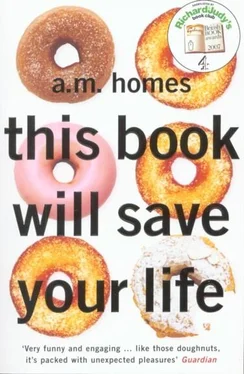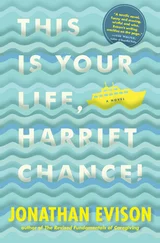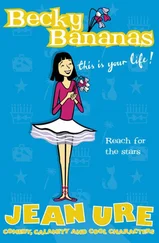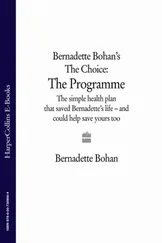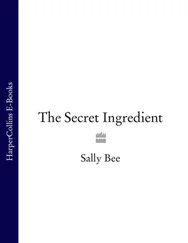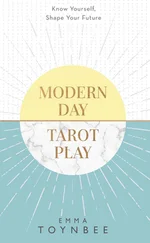Nic exhales. "Let's see. Mosquito bites, high humidity, no air conditioning, no locked doors, porches, sitting outside at night, my paper route, running track, slapping the baton in someone's hand, football games, following my brother around. When you're a kid, war is 'Bang-bang, you're dead,' cap guns, snowball fights, shirts and skins in an apple orchard. About fifteen years ago the Vietnamese invited us to visit where he died. We didn't go."
"I don't remember anything," Richard says. "It's not like I keep thinking, Oh, I don't remember; it's more like nothing occurs to me and then, all of a sudden, a little piece comes back and I think, That's interesting, I'd completely forgotten that."
"We live in a time when no one wants to remember. We pretend we are where it starts. Look at the way we live — we build houses on cliffs, on fault lines, in the path of things, and when something happens, we don't learn history, we build it again, right on the same spot, bigger, better." Nic pours. "Fallout accumulates. What we've got now is a blend of fact and fiction that we're agreeing to call reality."
"What was the worst thing you ever did?" Richard asks.
Nic's answer is instantaneous. "Slept with my brother's girlfriend, after he died; for a second I felt like my brother, and that was incredibly powerful, and then it was awful. You?"
"I offered to get my father stoned." He laughs. "I showed him some pot. 'You think you're such a big shot,' " he said, and then he wanted me to take it outside and bury it. He was afraid we'd all go to jail, as though the police were going up and down the Brooklyn streets sniffing people's pockets." Richard laughs again.
They drink and listen to the ocean.
"There is a woman I know, a survivor from World War II," Nic says. "Everywhere she goes she takes a little something, she worries that when she gets to the next place there will be nothing. In her purse there's always something wrapped in a napkin, there's always something extra from the grocery store. She once told me, 'It's easier when they have something free by the door, like those free AOL discs.' She has hundreds of them; she slips one into her bag and is, for the moment, relieved. More scotch?"
"A little."
"What do you think of this?" Nic says. "I have a recurring dream of going into the ninety-nine-cent store, and there's a suicide bomber in there buying duct tape. He's standing in the aisle, wrapping duct tape around his middle, around his bomb, and I'm the only one who sees him, everyone else is shopping."
"Are you drunk?"
"No doubt. But the dream is real; I've had it three times." He pauses. "Too bad your friend with the donut shop doesn't have a Santa Monica depot, I could really go for one of those sprinkled high-tops."
ON SATURDAY, he takes Ben to Disneyland. Barth is at Anhil's, Ben drives. He drives like a kid from the East Coast, a kid who took lessons on weekends, who only drove in the summer.
On the highway, he stays in the right lane, despite the millions of people using it to fade in and out.
"Am I doing something wrong?"
"No, not at all, nothing wrong, just maybe give it a little more gas, so they don't all have to go around you. It's difficult in this lane with everyone entering and exiting and us hovering at forty-five."
Ben nods. He pushes it to forty-eight. His daisy in the flower holder is wilting. It takes a long time to get to Disneyland. Main Street, U.S.A.
"It looks exactly like I thought it would," Ben says. "It's so clean, like they want it to look brand-new every day."
It seems wildly expensive; how do poor people or people with more than one kid afford this? Richard wonders. It's not like Rye Playland or Coney Island, where five dollars used to buy a day's entertainment.
"Isn't it amazing the old mouse is still so popular?" Ben says as he has his name embroidered on the back of a mouse hat — twenty-two dollars.
Pluto strolls over and puts an arm around him, and Richard growls. He's aware of himself being grouchy, weirdly just like his own father. When he was a kid, they would finally go and do something fun and his father would be miserable and the rest of them would spend the day baby-sitting his misery.
"No one ever took you to Disney World, not even when you were in Florida visiting Grandma and Grandpa?"
"No," Ben says.
"Not with your class at school?"
"We went to places like Normandy in France and to someone's family's organic farm."
They get in line for the driving ride. You must be at least three years old and so high to go on this ride.
"Aren't we a little old?"
"How could we be too old? We never did it before," Ben says.
"We're taller than everyone here."
The cars are on a metal track, you're not really free, but you get the sensation of driving; there's four inches of "wiggle room" in each direction.
"Did you love each other?" Ben asks as they take off.
"Yes." Going around a curve, some lunatic six-year-old keeps bumping into the back of Richard's car, even though he's flooring it and there are signs everywhere that say "No Bumping." "I loved your mother very much; I'm still drawn to her."
"What happened?"
"Did you ever ask your mother?"
"Yes."
"And what does she say?"
"She says you wanted more than she could give."
"That's true with one modification: I wanted more than she wanted to give me, which is not the same — she chose not to give it."
"Is it weird to make a person and then have the marriage fall apart and then no one wants the person?" Ben asks.
"We wanted you, there should never be a question about that. You were wanted."
"How would I know?"
GOING FROM ride to ride, Ben is so excited that he can't bear the slowness of walking. He runs. As jaded as the kid is, there's something about him that's untouched, something genuinely sweet that Richard really likes.
They spin in the Mad Hatter's teacups.
"So why didn't you take me with you?"
"I had no idea where I was going."
"Didn't you know that I needed you?"
"I'd never had a kid before."
"But you were one once, you had your own father, your own childhood."
It feels like an interrogation, like the kid is going to spin him around and around until it all falls out, until there is nothing left, and Richard thinks, Fine, do it, I deserve it — it's the conversation they've never had.
At Space Mountain they wait in line for twenty-five minutes. The people in front and in back of them probably know them better than they know themselves by the time their turns come.
"I didn't think I was leaving you in a dangerous place; I left you with your mother."
"You left, that's the only thing that matters."
AWOL. Lost at sea. He didn't fight. He couldn't bear any drama. He went to a hotel. It wasn't like he had the whole thing worked out, it just happened that way. He went to a hotel, lay down, and thought he would die. There was the crippling stillness, the absence of oxygen, the physical pain. He remembers physical pain. He almost whips his cell phone out of his pocket and calls Lusardi to tell him he's made the connection, but he can't bear for everyone at Space Mountain to know more. He remembers the pain — he won't forget it now. He didn't call for a week, and when he did she said, "What do you want, do you want me to tell you to come back? You're the one who decided to leave; no one told you to go."
"Did we ever talk about roller coasters?" Ben asks.
"I don't think so."
"I love roller coasters," Ben says.
On Space Mountain, Richard feels like his body might explode, his muscle fibers are vibrating, with every up and down his stomach sinks, he feels tortured.
As soon as they are out, Ben wants to go again.
"I've got an idea," Richard says. "We'll get in line together, and then, when it's our turn, you go on your own and I'll run around and get in line again, and that way you can just keep going around and around." They do that about six times, until someone catches on and gets annoyed.
Читать дальше
